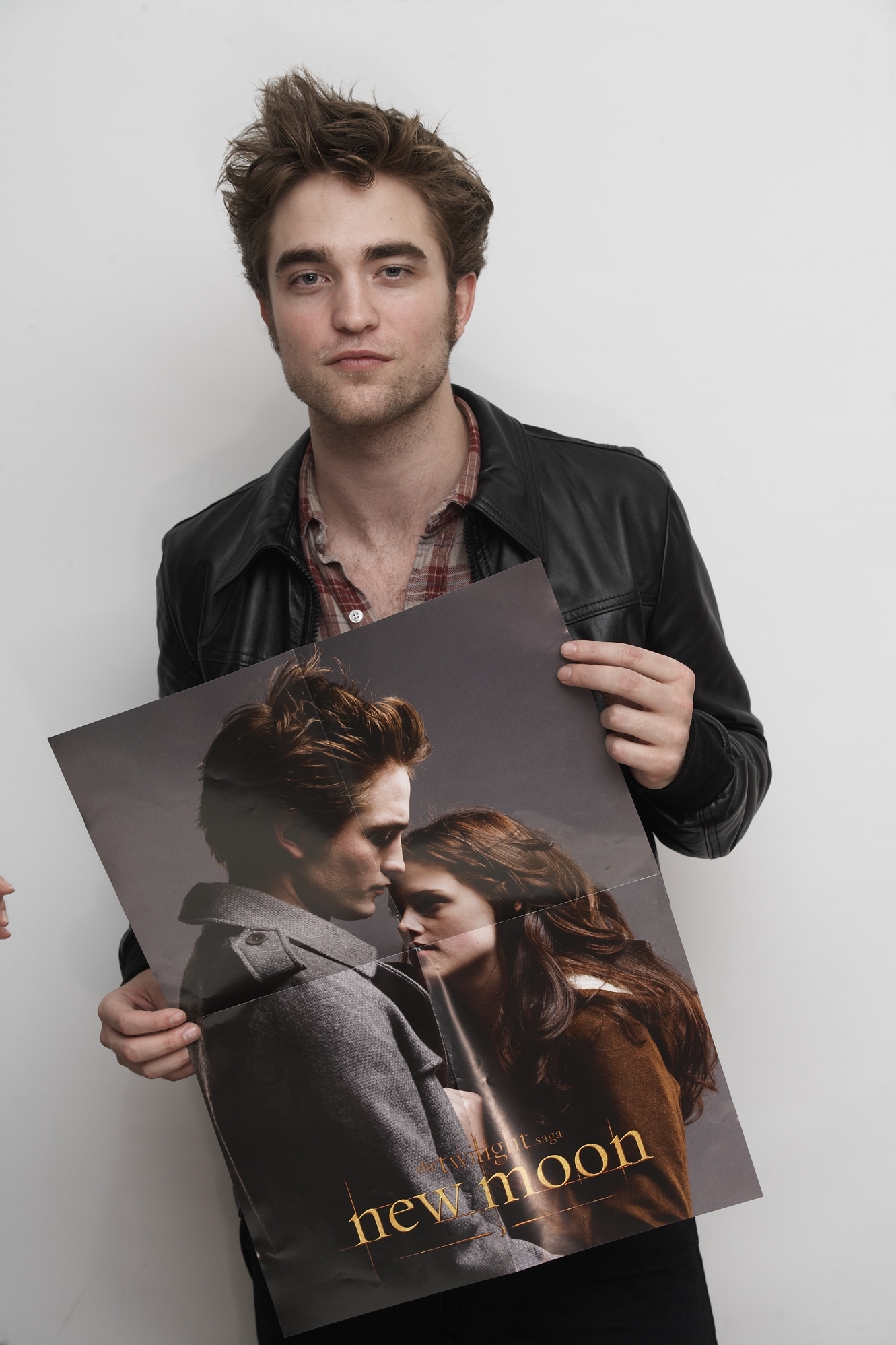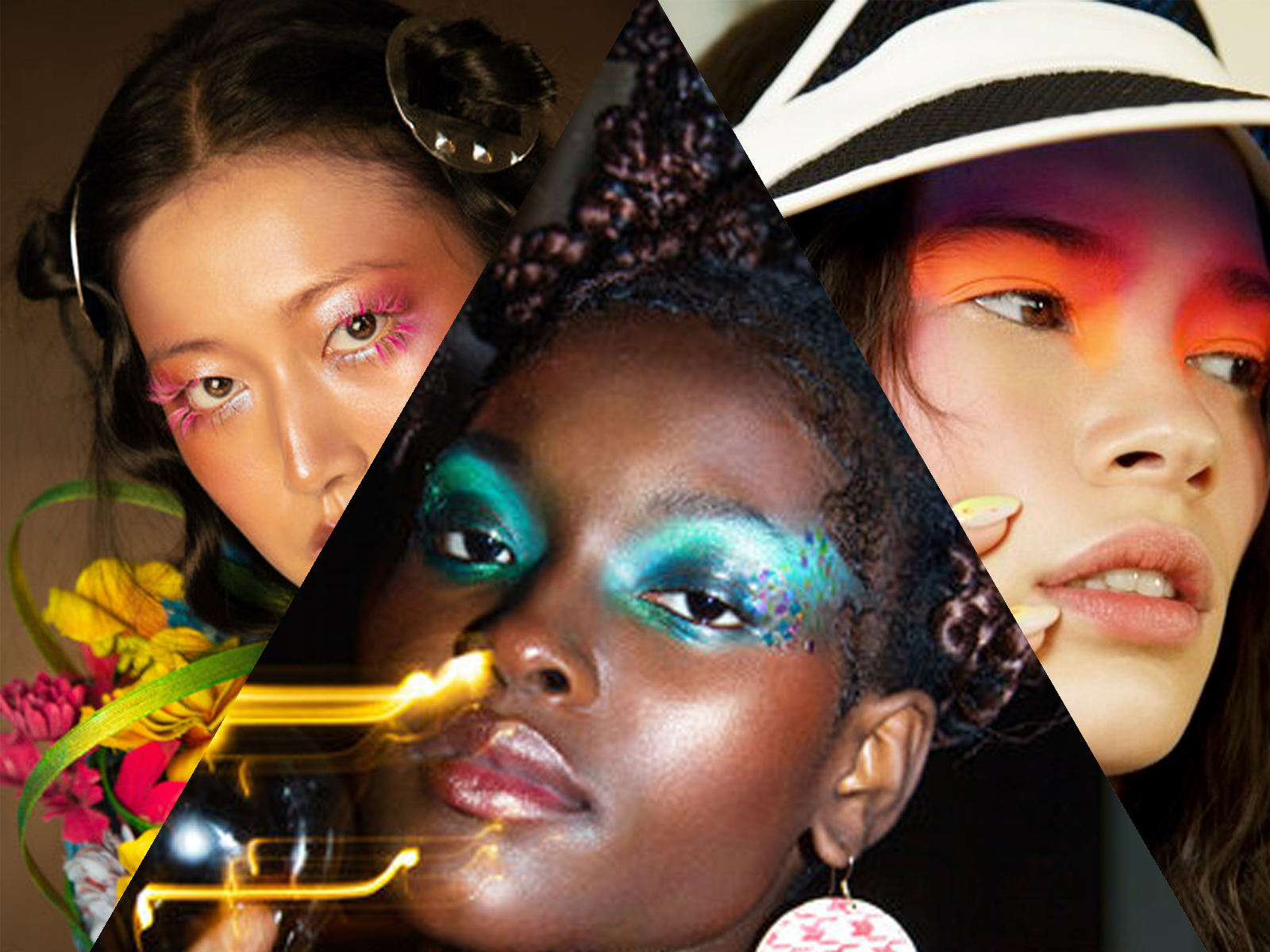
- Fashion
Zabrina Matiru: “Surface”, “Swan Song”, “Twilight” – Makes Stars Gorgeous & Gruesome

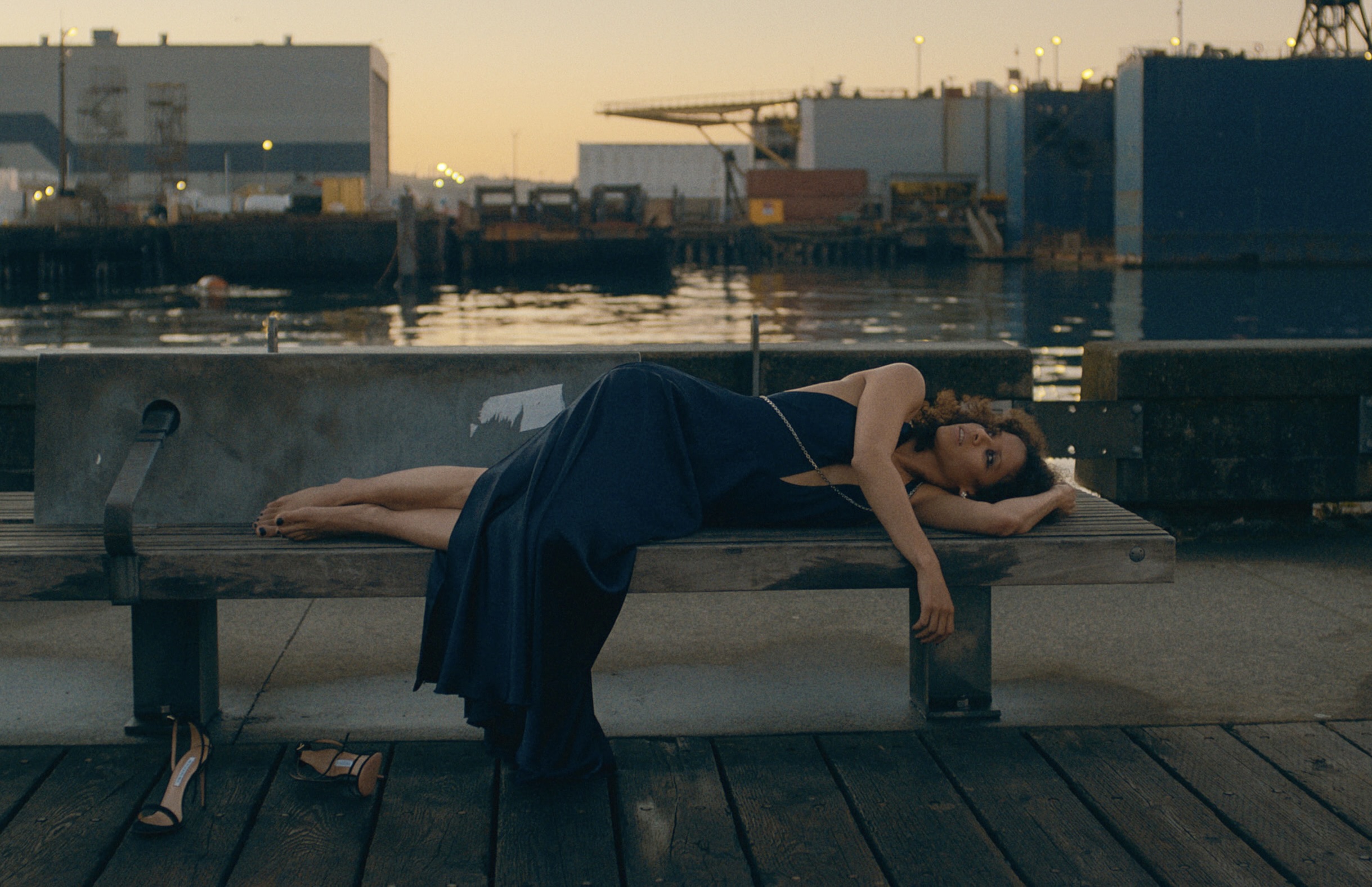
Zabrina Matiru is known for making people look gruesome and gorgeous. Nominated for an NAACP Image Award for Outstanding Makeup in Television and Film for her work on the Gugu Mbatha-Raw show, Surface, produced by Reese Witherspoon’s company, Hello Sunshine, Matiru is as good at de-stressing beauty, as she is at special effects makeup, and fashion.
Kenya-born Matiru stepped away from the set of her current show Goosebumps, where she is Department Head and Makeup Designer, to chat with us via Zoom.
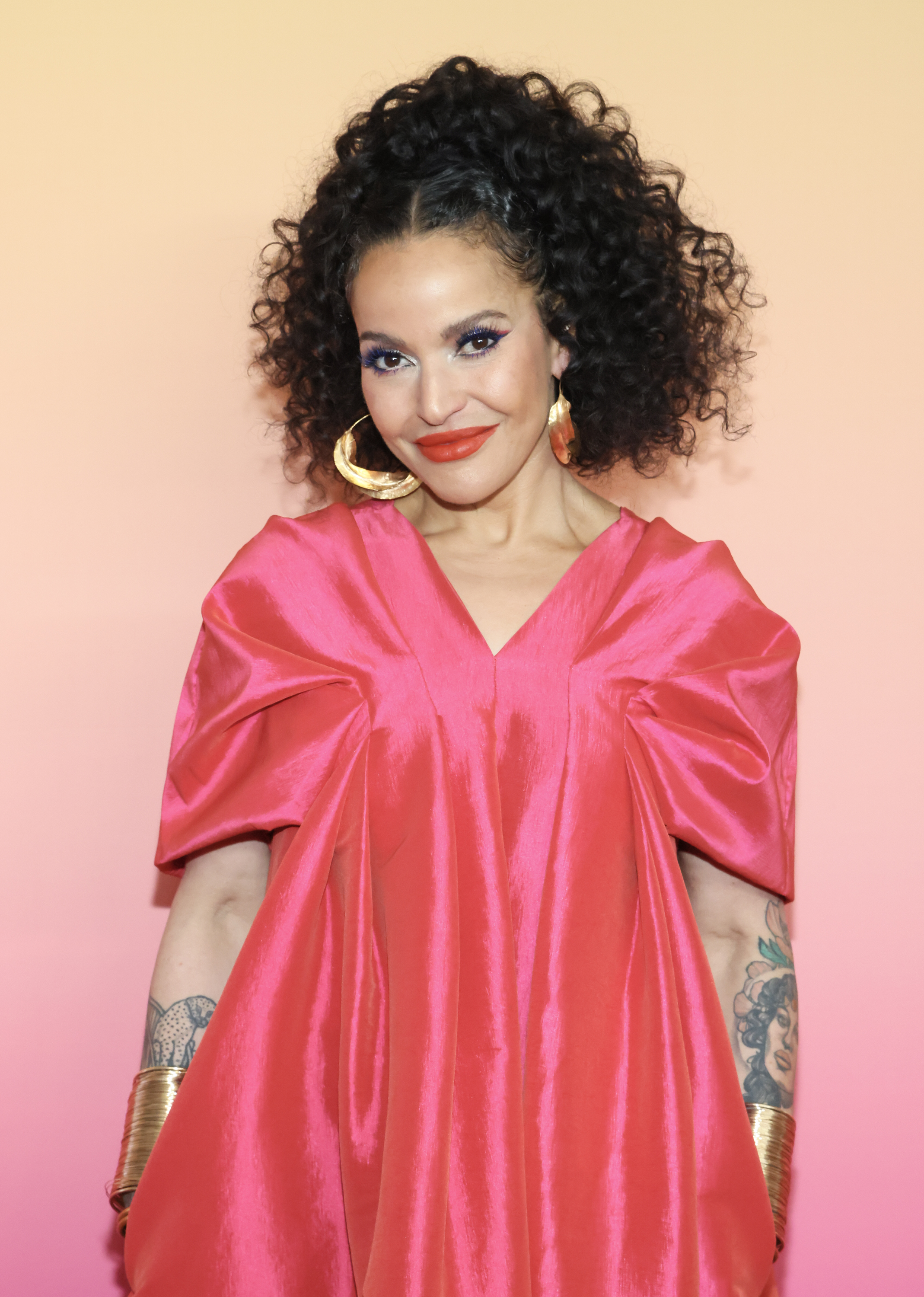
Working with someone like Gugu Mbatha-Raw in front of the camera and Reese Witherspoon behind the camera, sounds like a dream, how do you deal with these big names and who does the hiring?
Prior to working on Surface, I had just done a movie with Mahershala Ali and Naomi Harris, Swan Song. Gugu was friends with some of the people from Swan Song and was coming to town. They said, “Call Sabrina to do the show with you.” Since I was available, Gugu insisted that I do the make up for the show.
It was such a wonderful thing because getting to work with her was enlightening. She’s very open to trying different things and allowing the artistic program to come through according to the storyline. As an Executive Producer it was up to her who she wanted to have.
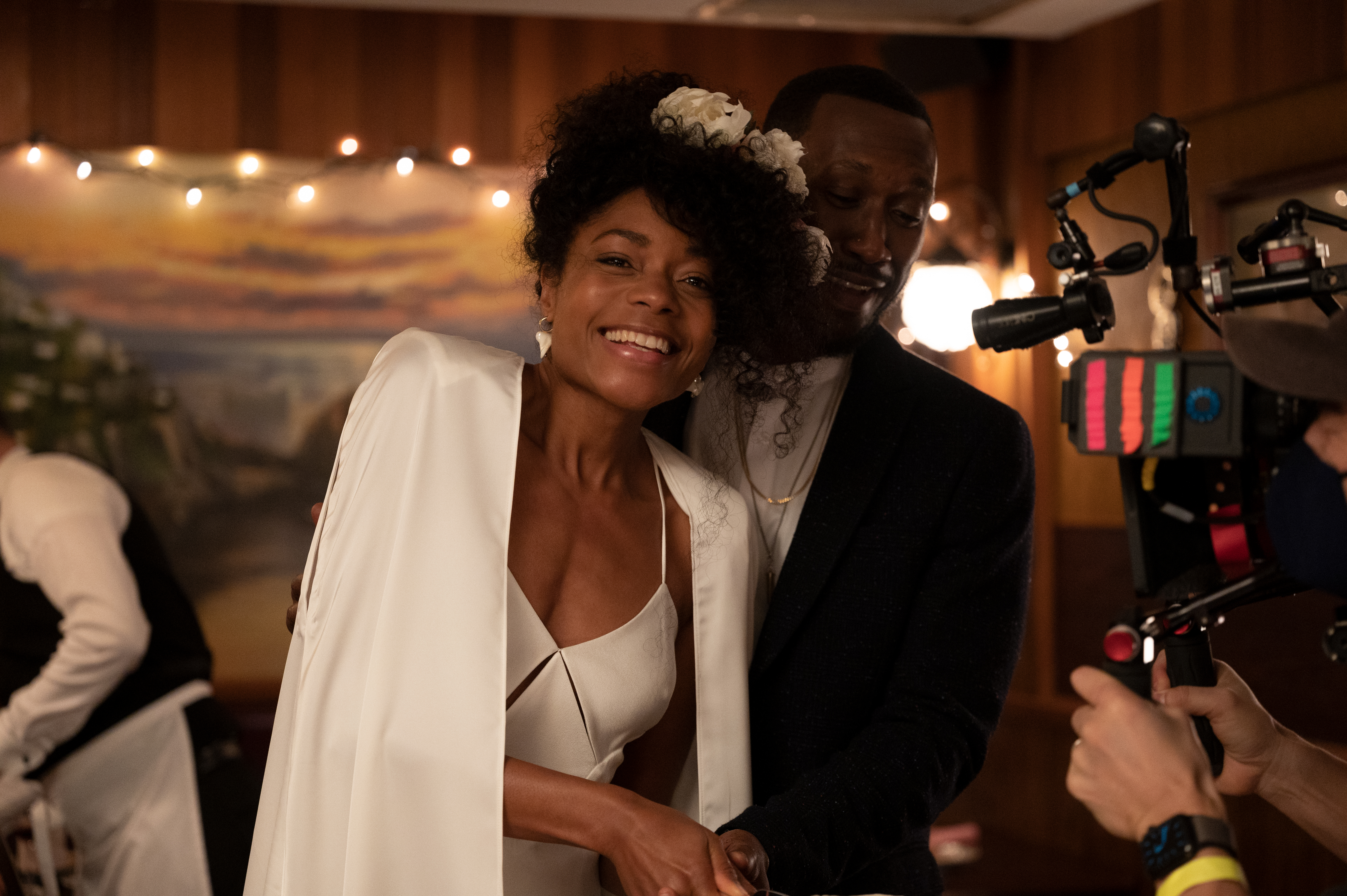
What is it like for the makeup artist who has beautiful humans, but the character has to be stressed. Is it ever an issue?
No! We do have stunning humans to work with, however, the characters go through a journey. It’s not always about trying to make someone look beautiful, or their best. Sometimes you’re trying to make them look bad e.g., if they are stressed, or have some kind of trauma they’re going through, or emotional distress. To tell the story you must achieve a look on people who may need a little more work to make them look bad, (laughs) than to make them look good.
When you read the script, you can lend the artistry to the story through helping a character to achieve a certain look, that helps to tell the story. In Surface we open the show with Gugu in the water. We don’t know if she jumped or fell. When pulled out she’s all messed up and ends up in the hospital having lost her memory. She has abrasions and injuries on her face and body. She’s emotionally distraught. That was not about trying to make her look beautiful. She is a beautiful person that goes through these instances. With a character we were able to run that gamut.
Gugu was so game to go through all of it and to be seriously messed up. In episode six, she goes to an art opening dressed to the nines, but her character takes a hallucinogenic drug. She goes on a crazy trip where she enters a painting and is like Ophelia floating down the river. Then she goes to a nightclub, hallucinating on the dance floor. The whole night is one big, long, lucid experience. That episode was one of my favorites because I was able to do a beautiful edgy look on her and then break it down into a really hot mess. Laughs.
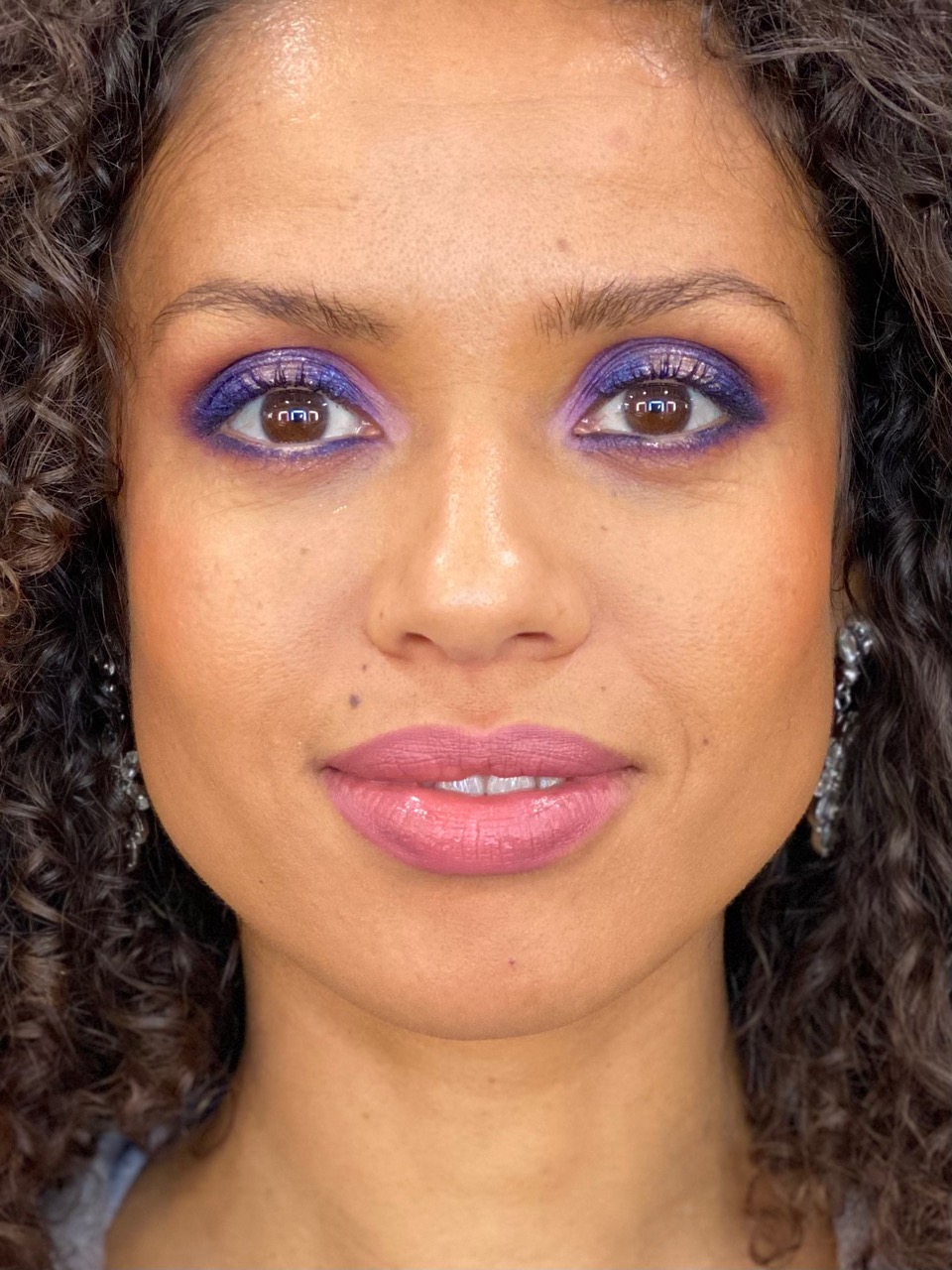
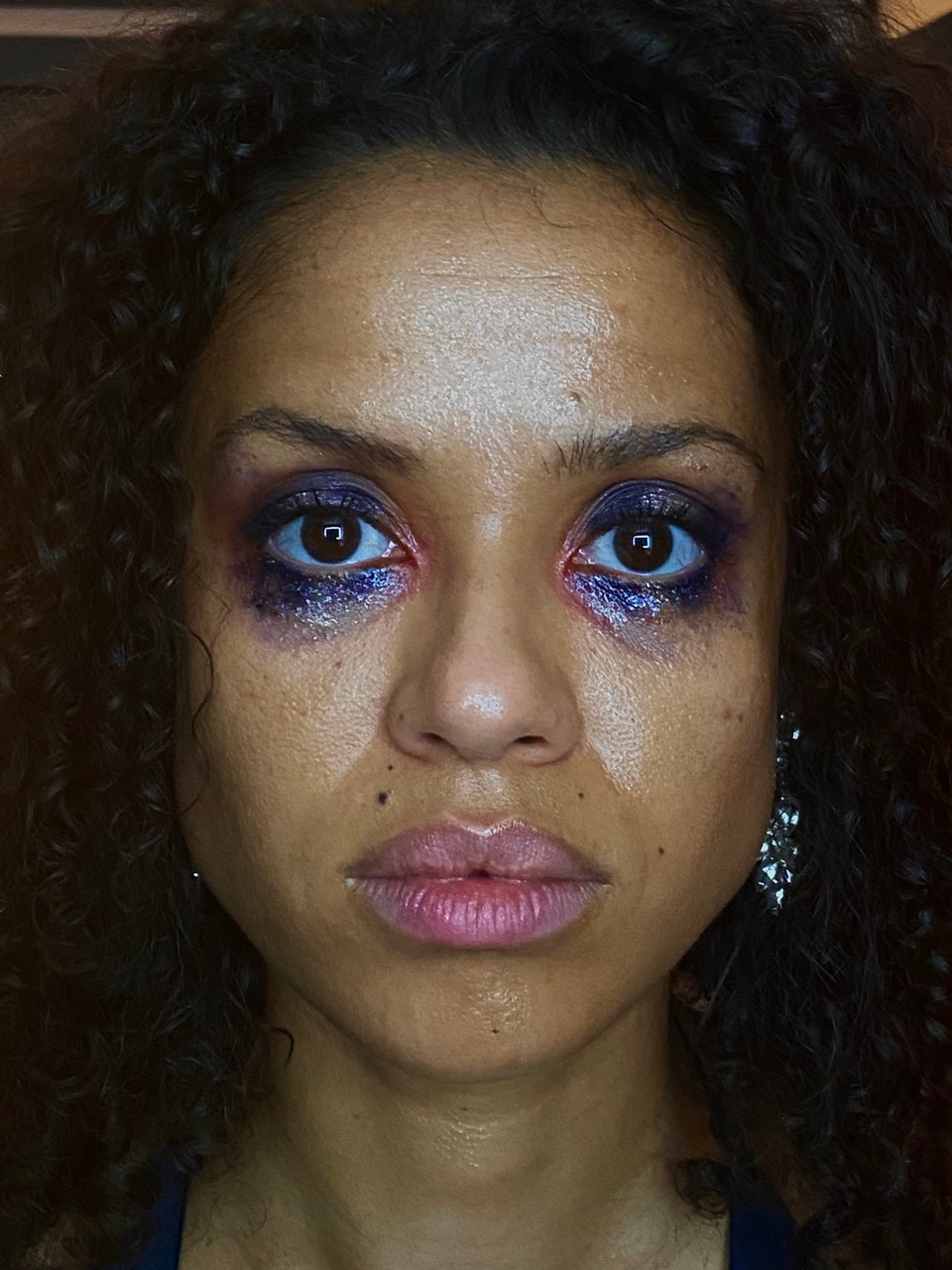
Talking about really hot messes: you’re working on Goosebumps. You’ve had a track record of doing horror – from Twilight to Supernatural and fantasy, like Once Upon A Time. When you get to the set of a horror film, are there other women behind the camera?
In horror, there is greater representation of women behind the camera, in terms of writing, directing and actors. You always have that woman who is distraught in the script, or some kind of evil character. In the horror genre there is more female representation than other genres.
What are the challenges of working with horror? A lot of the horror is very inventive, and the skill set must be rigorous. We hear actors spend four hours in a makeup chair.
Yes, the challenges in horror are that you can have complete science fiction. Complete creative reign. Not everything has to be reality based. Sometimes you take a storyline that seems really normal and all of a sudden, a person’s head gets chopped off – but they’re able to pick up the head and put it back on! Anything can go. That’s very exciting, very interesting. You’re marrying the world of special affects with street make up. I love that. The challenge is making the normal and the special effect look good.
Its ensuring that you have effective beauty/makeup skills, as well as effective special effects skills. If you’re getting into the prosthetic world, making that look good, working with the prosthetic artist, and having the design crossover into both worlds effectively.
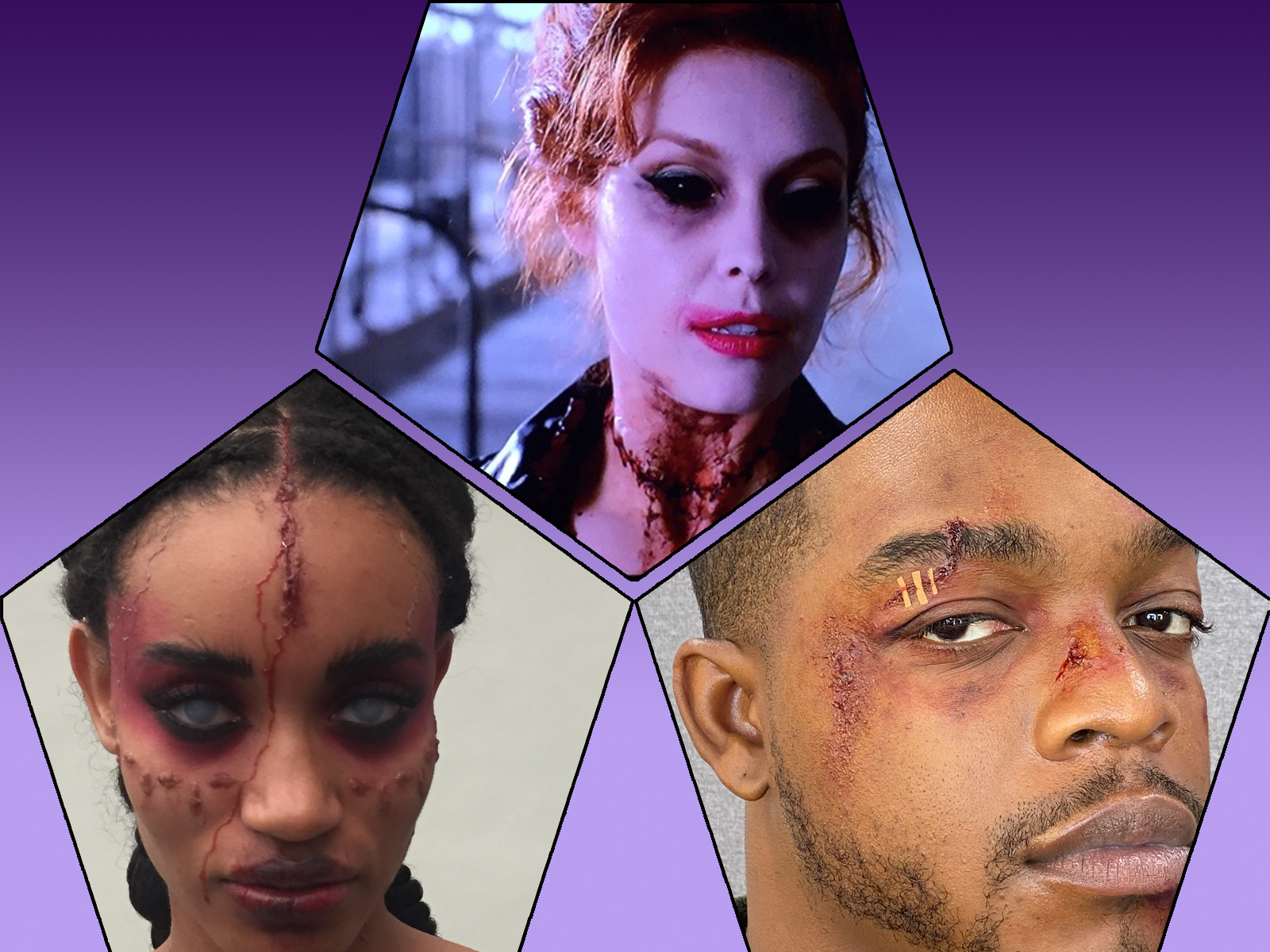
I’ve spoken to a lot of hairdressers in fashion, television, film who say not having a person of color behind the camera in the make-up and hair chairs, is more of a challenge for the actor, because sometimes there’s a lack of knowledge on how to optimize for that person who’s been cast? Has that been an issue for you as a makeup artist?
It has been an issue with representation for people of color. As a woman you are a minority on set. As a person of color, you’re furthermore, a minority.
When you get people of color in leadership roles, or interacting with each other on set, I feel there’s a recognition and a sense of camaraderie, because they see a likeness.
That automatically leads to a sense of comfort. I think it’s really important to have representation behind the scenes and within the crew, it makes for a diverse experience that is a little more comfortable – of course, personalities withstanding. Seeing somebody who is of likeness to you, makes you feel a little more comfortable.
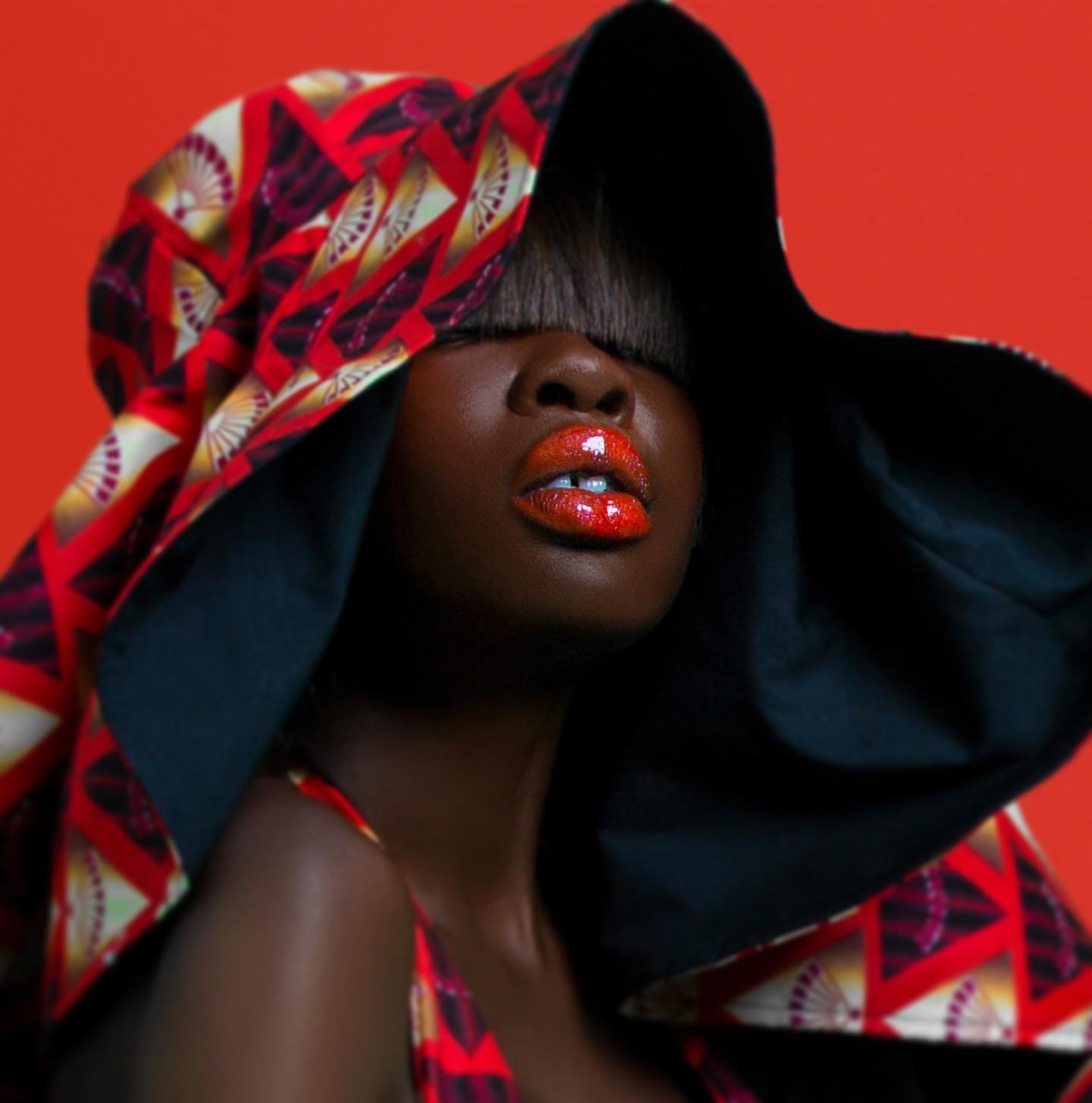
Were you ever tempted to be in front of the camera?
I didn’t grow up feeling that I was worthy of being in front of the camera. I have three very handsome brothers growing up in Kenya. As a woman, sometimes in that environment, you’re not what you could be elsewhere. You are a wife, a mother, and a worker on the side. I’m not saying I support that, but it was and sometimes is, a cultural thing.
Growing up makeup was not an avenue I could think about exploring. Entering that arena, I was winning the lottery, just being able to work in film and do make up. I feel better making other people look fantastic in front of the camera. I definitely enjoy a sense of style and artistry in how I put myself together. But I don’t really need to be in front of the camera.
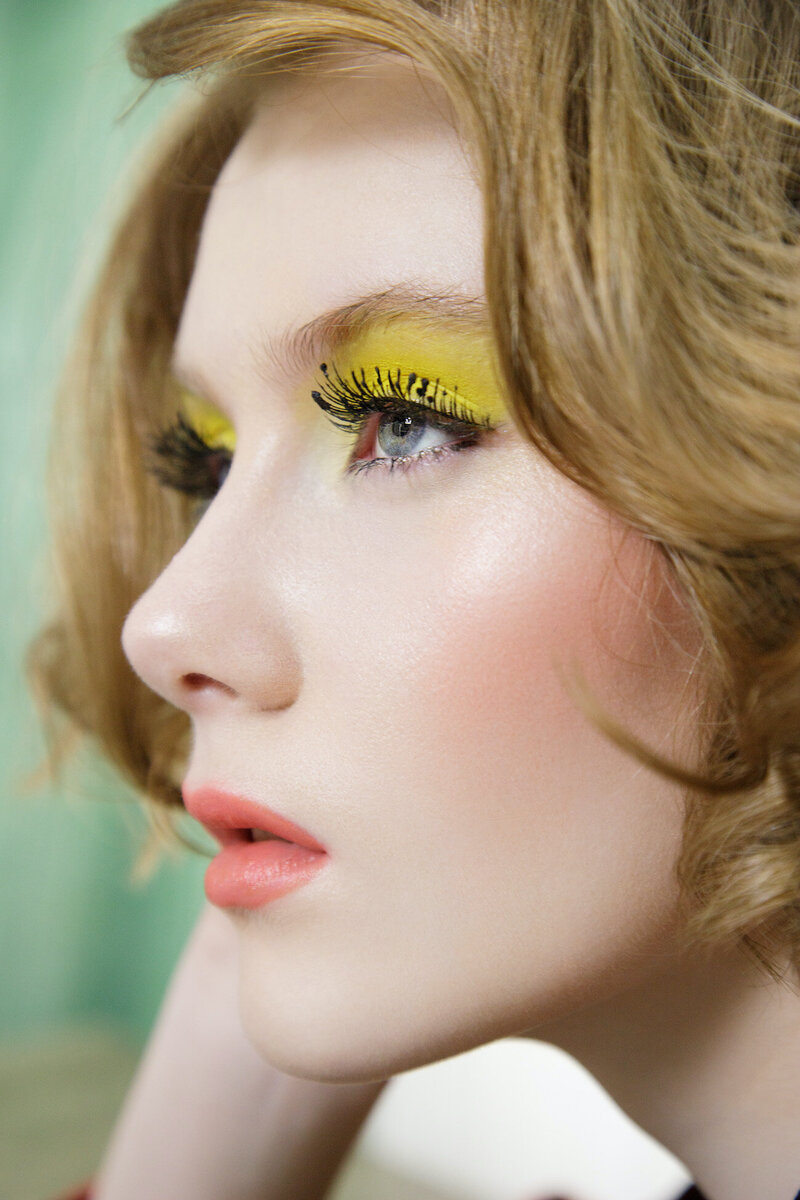
I, too, am from Africa. How did you become a makeup artist?
I was not allowed to wear make-up growing up either. It was considered cheap and loose. I really bugged my mother to buy me a little trio of purple max factor eyeshadows that I had no idea what to do with. The first thing I did with it was to create a bruise!
I was trying to put it on with my fingers. It smudged below my eye. I went. “Oooo, look at that!” I quickly added more under the eye, and it looked like a bruise. It was nothing about trying to be an Affects artist, because I didn’t know what that was. But I began experimenting putting bruises on my elbow and eventually doing it properly on the eyes.
After doing my A-levels in England. I took a year off and I went to Canada. I’m half Canadian. While waiting to get into University I took a course in fashion design. One of my friends said, “Come to makeup school with me. Even if you don’t want to pursue it, you will look better after having done it!” He was very fabulous. The course covered fashion, history, TV, film and makeup effects. One of the teachers encouraged me to pursue makeup effects. Once I got into film, I realized that Vancouver is actually a hub. You can have a career in film. I love the effects side. I entered film through film makeup artistry.
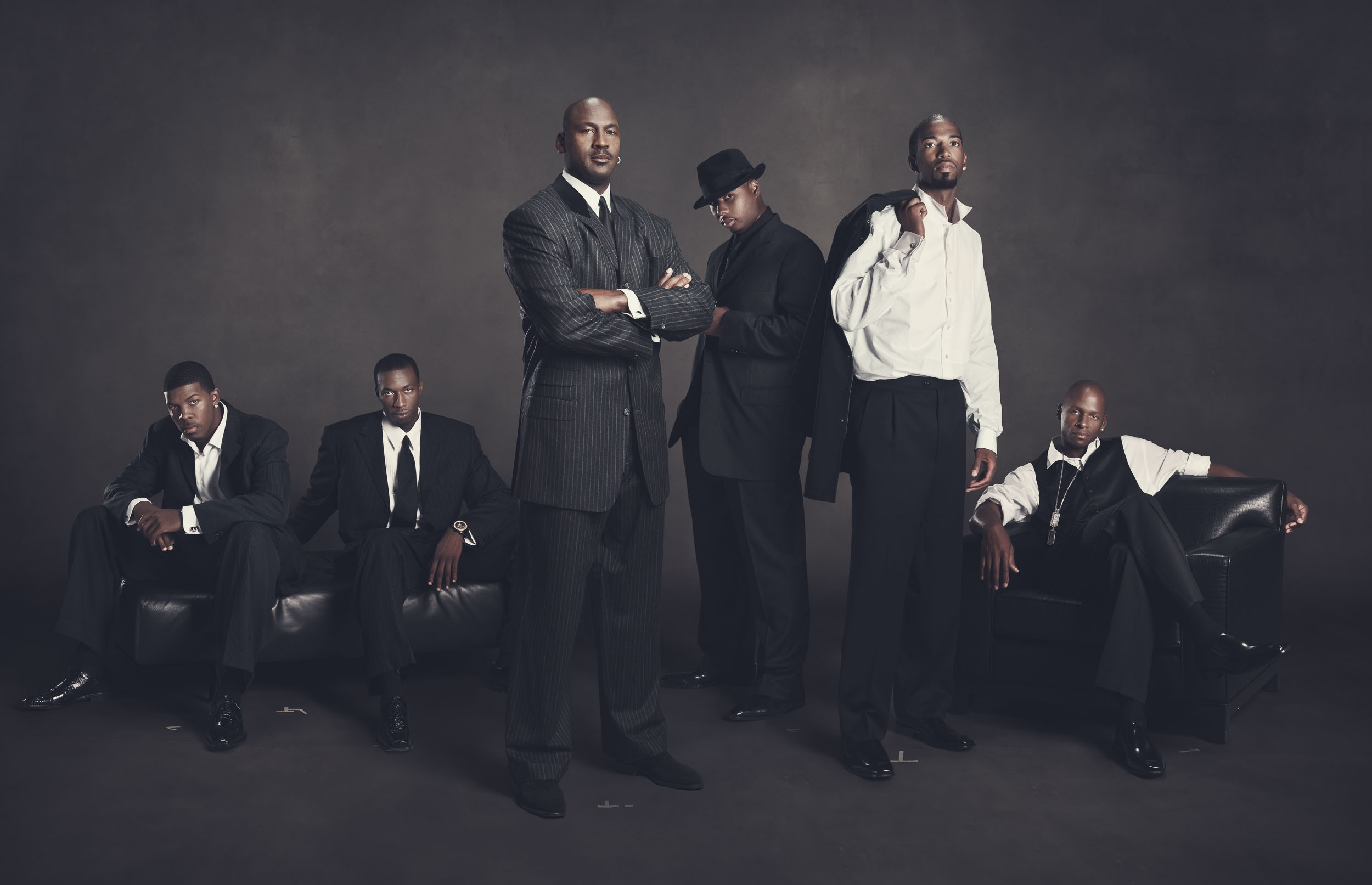
You’ve worked with so many shows/films that have a huge fanbase. Talk about that.
My first experience with that was working on the makeup team for The Twilight Saga: New Moon. The magnitude of fandom. We had to put up tunnels because of the paparazzi and fans. The Paparazzi would hang off bypasses to capture photos of Kristen Stewart and Robert Pattinson. Going to set, if we had to drive, they would put us in the SUV limousines as decoys. I recall driving past these rows of fans screaming excitedly and lowering the blacked-out window and sticking my head out, and the hush that came at the disappointment, the “AWWWWWW!” I have never been so disappointing to so many people all at once!
